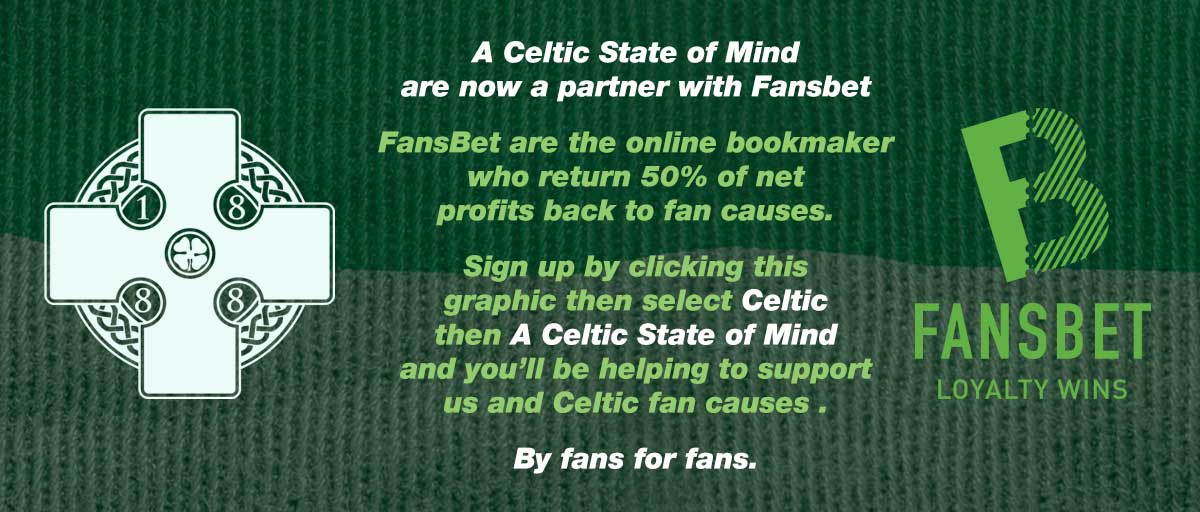When the floodlights were switched off at Celtic Park on the night of the 10 April 1974, there was little suggestion that it would be the last time a European Cup semi-final would be played at the stadium.
Only seven years earlier, Celtic rose to the top of European football when Jock Stein guided the Lions to immortality in Lisbon. In those seven years, Celtic had contested four European Cup semi-finals, winning two and losing out on the others. The legendary heights reached in Lisbon could not be scaled again in Milan after losing out to Feyenoord in the 1970 European Cup final, but for seven years Celtic were synonymous with the business end of European club football’s greatest prize.
By the time our club sobered up from the centenary league and cup double celebrations in the late summer / early autumn of 1988, Celtic had taken part in 13 European Cup ties over a 14-year period, failing to progress through the first round twice, and the second round three times. A run to the quarter-final in 1980 was the only time in which we had new year celebrations and still had hope of success in Europe’s premier club competition. However, in that season we lost to Real Madrid at the quarter-final stage.
A defeat to Werder Bremen in 1988 brought the curtain down on Celtic’s involvement in the European Cup. In the ten-year sabbatical caused by our failure to win the league championship, the European Cup went through a glamorous rebranding into the Champions League.
The rules governing clubs’ involvement were dramatically changed, allowing teams who weren’t champions to fight it out to be European champions. Sponsorship, TV rights and huge financial incentives from UEFA now mean the same protagonists from Spain, Germany, Italy and England have the odds heavily weighed in their favour.
Listen to the award-winning A Celtic State of Mind podcastSince the millennium, Celtic have become reacquainted with the magic of the European Cup, following in the footsteps of clubs across the continent, spending money to reach the holy grail of the competition group stage or knockout stages for the trophy. That journey is becoming increasingly difficult, more so because of the competition seedings designed by UEFA, which meant this season Celtic had to overcome four teams over eight matches to guarantee a further six money-spinning matches in the group stage. To put that into context, Celtic played six matches when they exited at the quarter-final stage in 1980. The need for almost flawless perfection in July and August pushes the club and fans to the brink season after season.
The footballing landscape on the continent has changed since our European glory days of the late ‘60s and early ‘70s. There are more nations and clubs actively taking part and more businesses looking to capitalise on the wealth promised by UEFA. We find Celtic stuck in the middle of it all, a hugely historic club with an ever-decreasing chance of being invited or making our own way to the party.
I dream of watching my team compete at the business end of the European Cup, but I am realistic enough to know those days will be few and far between. Celtic should have been good enough to make their way past Cluj in the third qualifying round, but they simply didn’t do enough to prove it. Managerial decisions and player form cost us dearly. At times during the tie, Cluj looked a far superior side in terms of technique, they knew what they had to do and were able to find time, space and team-mates in order to do it.
For me, it’s difficult to gauge what constitutes success in European football. Do we want to reach the group stages and be embarrassed like seasons 2016/17 and 2017/18, or do we want to compete in a format more at our performance level?
The club needs to find that balance and make it clear to fans what that ambition is. Our wings have been clipped in recent seasons, but there is no reason why we can’t build a plan and timeframe to allow us to dream of flying again.
Martin Donaldson


Leave a Reply
You must be logged in to post a comment.